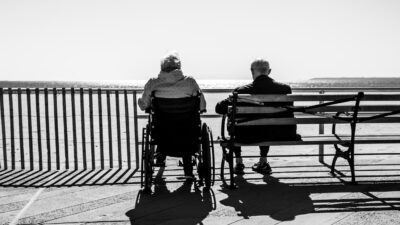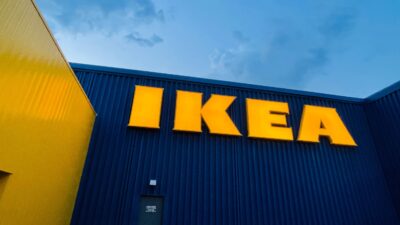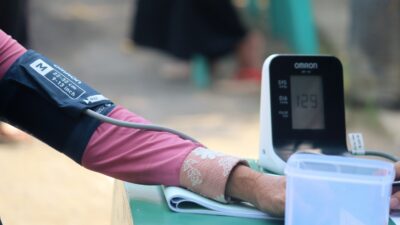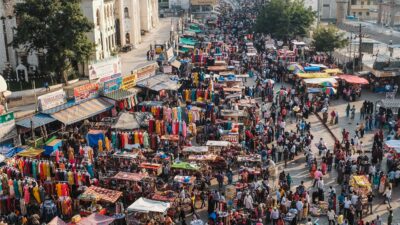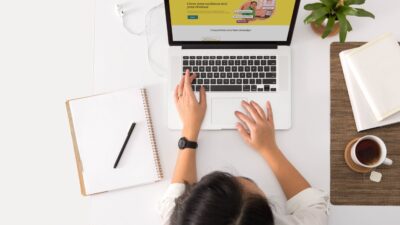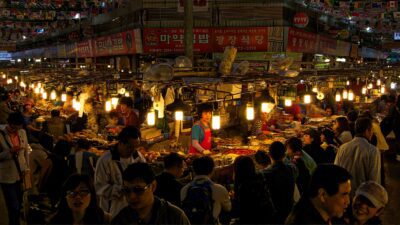Sandra Peter and Kai Riemer
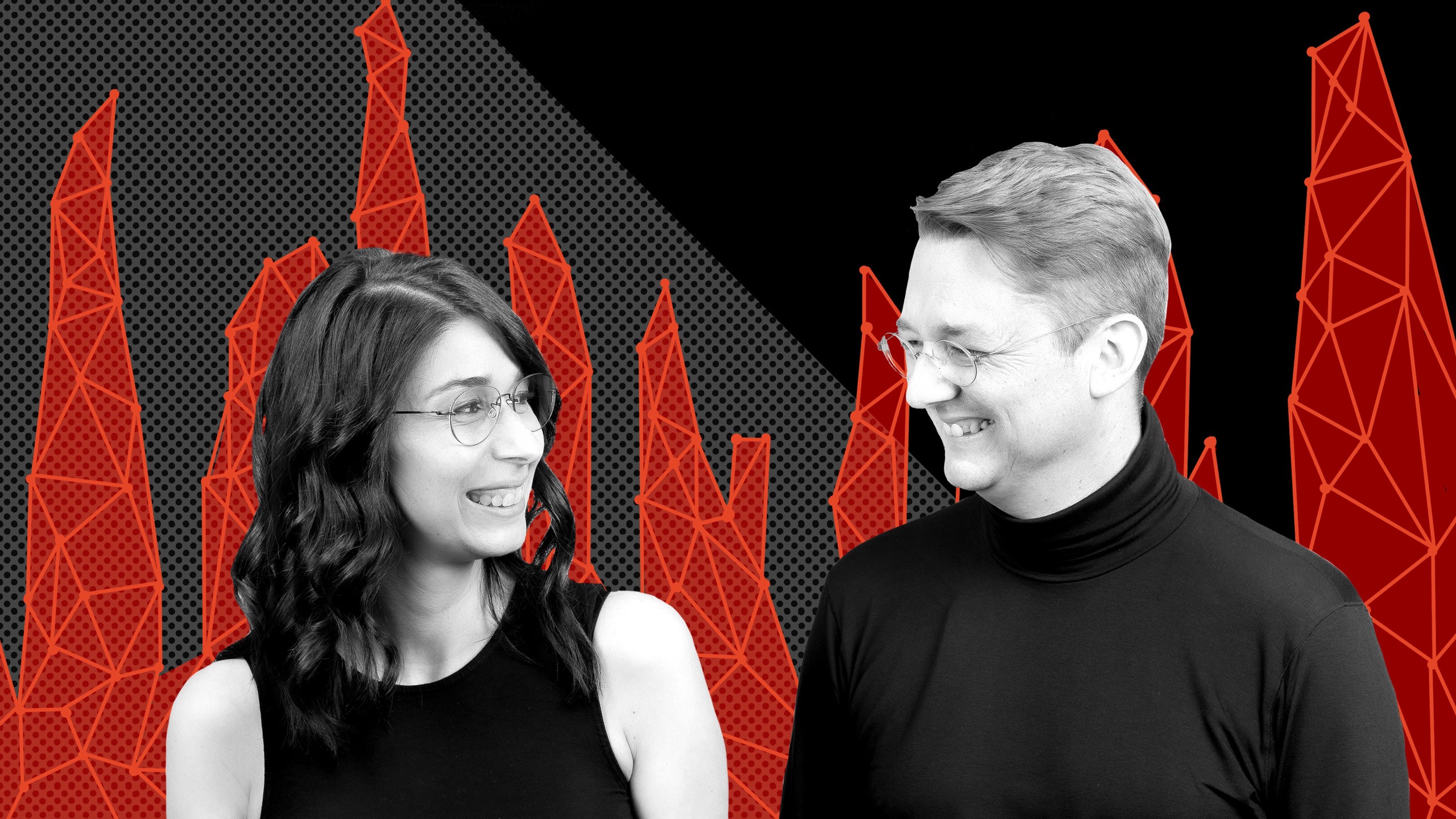
The future of wine and some remote work stuff
This week: the future of wine is bleak because of millennials, climate, tariffs and taxes; and more remote work and fake companies.
Sandra Peter (Sydney Business Insights) and Kai Riemer (Digital Futures Research Group) meet once a week to put their own spin on news that is impacting the future of business in The Future, This Week.
The stories this week
12:50 – The future of wine is bleak
Other stories we bring up
Nature article on the effects of remote work on collaboration among information workers
The BBC investigation of Madbird, the fake design agency
Our previous discussions of hybrid work, remote work and working from home
The 2022 State of the U.S. Wine Industry report
Australian wine exports fall but there are signs of uptake in new markets
Two glasses could be enough to reach the recommended daily sugar limit for adults
Wine production in EU at risk as warming dries out soil
Grape expectations: making Australian wine more sustainable
Nature article on the effects of remote work on collaboration among information workers
The BBC investigation of Madbird, the fake design agency
Our previous discussions of generation Z and generational categories
The 2022 State of the U.S. Wine Industry report
Australian wine exports fall but there are signs of uptake in new markets
Two glasses could be enough to reach the recommended daily sugar limit for adults
Wine production in EU at risk as warming dries out soil
Grape expectations: making Australian wine more sustainable
Follow the show on Apple Podcasts, Spotify, Overcast, Google Podcasts, Pocket Casts or wherever you get your podcasts. You can follow Sydney Business Insights on Flipboard, LinkedIn, Twitter and WeChat to keep updated with our latest insights.
Send us your news ideas to sbi@sydney.edu.au.
Music by Cinephonix.
Dr Sandra Peter is the Director of Sydney Executive Plus at the University of Sydney Business School. Her research and practice focuses on engaging with the future in productive ways, and the impact of emerging technologies on business and society.
Kai Riemer is Professor of Information Technology and Organisation, and Director of Sydney Executive Plus at the University of Sydney Business School. Kai's research interest is in Disruptive Technologies, Enterprise Social Media, Virtual Work, Collaborative Technologies and the Philosophy of Technology.
Share
We believe in open and honest access to knowledge. We use a Creative Commons Attribution NoDerivatives licence for our articles and podcasts, so you can republish them for free, online or in print.
Transcript
Disclaimer We'd like to advise that the following program may contain real news, occasional philosophy and ideas that may offend some listeners.
Sandra Fine, we'll talk about remote work for a little bit. But we've got to talk about that...
Kai The fake company.
Sandra The fake company, oh my god the fake company, and then we go and just talk about wine.
Kai Wine's in trouble.
Sandra The future of wine is doom and gloom, we can't skip this one.
Kai It's bleak. No.
Sandra It's bloody bleak.
Kai And it's not tech for once, so.
Sandra You're ready?
Kai Yeah.
Intro From The University of Sydney Business School, this is Sydney Business Insights, an initiative that explores the future of business. And you're listening to The Future, This Week where Sandra, Peter and Kai Riemer sit down every week to rethink and unlearn trends in technology and business.
Sandra So we're back.
Kai We're back. We're back with The Future This Week. We're also back in the studio.
Sandra Back in the office, back in the studio.
Kai Season 11. What are we talking about?
Sandra Oh, there's been quite a few stories while we've been away, many of them having to do with remote work and coming back from remote work. It's not just us coming back, many of the companies that have sent all of their employees back home are recalling them to the office.
Kai Yeah, many tech companies. Meta, aka Facebook, is bringing its employees back to the office. There seems to be a bit of a split, Google and Apple delaying it. But Microsoft have come out and said that everyone's going to come back to its offices in the Washington State area, Redmond, Seattle. And that is significant because Microsoft is also one of the big companies who've done extensive research into the effects of remote work.
Sandra Yeah, and they've had a recent paper in Nature.
Kai Yeah, Nature Human Behaviour in which they report on a natural experiment. That's the word for when you have access to a large population where something has happened, as has during COVID. Lots of people went to remote work full-time. And Microsoft studied its own employee base.
Sandra Basically, Microsoft sent home it's 60,000 plus employees, and then monitored to see what happens once everyone starts working remotely over an extended period of time. And in this case, I think they looked at about six months’ worth of data to try to understand how did this change the way people work. And we've spoken a few times about some of these findings, because they presented some of the early findings last year. But to cut the long story short, they pretty much confirmed what they suspected from the initial data.
Kai So they found that people are basically less connected. While they maintain their strong ties, those people they talk a lot with, they have much less interactions with all those other people in the organisation that provides them with diverse access to information. They also build less new relationships. So communication becomes much more static.
Sandra So people basically become more siloed, more with their ingroup, not reaching out to other people, not creating new networks. So all your collaboration basically becomes just a little bit narrower. Fewer people, no new people.
Kai For the organisation, that means less social capital is being established, the organisation is less networked, you have less information flow, which has an effect on how much access you have to diverse information, which can impact innovation, for example.
Sandra And there were a few other things that they also found. One of them was that while productivity went up in the beginning, because you know, everybody had that push, we're all now online, we all have to make this work. In the long-run productivity declined. They also found that there was a lot less synchronous interaction, people would talk a lot less and would rely on email and other things to make communication work in a remote environment. And they also found that the work week had increased by about 10%. Even if the hours didn't necessarily increase for everyone, the time that people spent at work overall increased.
Kai So we raised this previously. So communication takes much more overhead, it takes more effort. And as work fills the day there is less time to actually build those relationships. And that can be a problem. And those problems are often unevenly distributed. So there was another article just now in the Wall Street Journal, which again, singles out Gen Z, the younger generation, as one that is really impacted by this. Because many of these people have joined organisations during the pandemic, and they've never ever met. Some of them in the article, haven't even seen their colleagues. They spend time on email on Microsoft Teams or in Zoom meetings where people have their cameras turned off.
Sandra And for Gen Z, the issues that Microsoft points out are even more problematic because those people don't have those networks to begin with. They're at the stage in their life where they should be building that social capital.
Kai Yeah, so essentially, Microsoft finds that it's harder to build relationships in this remote context, and if you don't have relationships to begin with, it's really difficult to find your way into the organisation, to build networks, to get ahead in your job, and to have access to the information that you might need. It also creates loneliness.
Sandra And we've spoken previously about the loneliness epidemic, we'll put the links in the shownotes. And the solutions in the remote working space are really quite difficult. If you think about the effort that you would need to expand to consciously build these relationships or bring people into meetings or spend additional time on top of your expanding work week to build those relationships, it becomes quite difficult. So at least a partial return to the office does seem to be the best solution.
Kai Especially for those young people who are in need to build relationships.
Sandra Unless you're working at Madbird.
Kai Madbird?
Sandra Madbird. This is news from the BBC.
Kai Oh, is this the article about the other issues and downside with, you know, starting a job remotely with in this case, a company that you don't know much about?
Sandra So this company Madbird hires all these people, like 40,50 some people during the pandemic. And this is a design agency, a very hip design agency, in London. They work over a number of months, people are very excited to be joining this very dynamic company, there are Zoom calls with 40 plus people on it.
Kai And naturally, everyone's working from home.
Sandra
Everyone's working from home, super-inspirational boss, Ali Ayad, with huge following on Instagram and profiles in various magazines.
Kai So these people work on projects, they pitch to clients.
Sandra Over 10,000 potential clients, they're expanding into Dubai.
Kai But then things get a bit weird and start to unravel.
Sandra Yeah, things start getting weird when one of the new Gen Zers tries to figure out how long their commute to work would be if there is a return to the office.
Kai And some people are keen to return to the office, you know, for the aforementioned reasons.
Sandra When this employee searches for the company's office address, turns out it's not the kind of sleek design ad agency space buzzing with, you know, creative types and post-its and all that.
Kai That was portrayed in the pictures she had seen online, yeah?
Sandra Yeah. Turns out it's a block of flats in Kensington.
Kai An apartment building.
Sandra An apartment building, and she follows up and figures out this is just an apartment building. There's no offices here. No one's ever heard or seen Ali Ayad or have heard of this company.
Kai So people get suspicious, and they do a little bit more research online.
Sandra They do reverse image searches on the company's Managing Director, and the board of the company. And they figure out that pretty much everything at Madbird has been stolen from somewhere on the internet.
Kai The Managing Director features the face of a beehive maker.
Sandra Yeah, in Prague. 10 years’ worth of global experience that the company had, all made up. Everything stitched up from stolen identities or random places on the internet or just made-up people including the ones on zoom with made up identities and made-up LinkedIn profiles, and just images or faces stolen off the internet.
Kai So turns out this one guy, according to the BBC investigation, invented all these fake people, fake profiles, fake narrative, fake pictures of sleek officers, to portray the image of an existing company and then starts hiring actual people, engages them in actual what turns out to be free labour for the company that doesn't exist.
Sandra And no one knows exactly why he did it. Was this a scam to eventually get money? Like, none of these people got paid ever. All the employees were working on commission. So they would have gotten a huge bonus once they signed the clients, which apparently they were very close to signing some of those big contracts. But it's not clear whether he just wanted the fame or, apparently he was a very engaged boss, you know, would send them music and spend a lot of time coaching and mentoring people.
Kai So not necessarily a scam, maybe just the unsuccessful attempt to create a company and make it look bigger from the start than it actually was. But what does it tell us?
Sandra Well, first it tells us that in this remote work world, often companies and even individuals are judged solely by their online presence, and nothing to do with the actual reality of things. So these things can indeed happen.
Kai And they can be faked. So, we're living in a brave new world where much of what we do is online. And incidentally, there's been another article this week that reports on research on experiments where people have been asked to judge faces, some of which were synthetically generated by an AI and others that were real. And the results are surprising.
Sandra Yeah, people found the fake people more trustworthy than the real people. And were also unable to really tell the difference.
Kai And apparently, you can't even train people to get better at, you know, judging what's fake and what's real, right?
Sandra Yeah, again, researchers tried to train people to be better at spotting fake, made up individuals. And it was extremely difficult because they were judged as more trustworthy than the real people.
Kai And because these networks, these AI algorithms are trained on these banks of pictures that have quite photogenic photos in it. They tend to feature slightly more trustworthy faces than you know, the average photo on the internet. Which goes to show how difficult it will be going forward weeding out fake profiles on platforms like Facebook, Twitter, LinkedIn, or indeed, you know, elaborate, deep fakes, so to speak, where, you know, a whole company has been faked.
Sandra Reminds me of that episode, when we did the fake restaurant with the fake reviews, which became the best restaurant in London.
Kai Which became the best TripAdvisor rated restaurant in London.
Sandra And it was completely fake. Well, we'll put the link in.
Kai Was also located in a residential area.
Sandra Yeah, exactly.
Kai What is it about London?
Sandra But the interesting thing about all these stories is first of all, how much the online reality is becoming reality, and how those boundaries between the digital world and the real world are blurring. The second is just how close this company came to actually making it work. And it also reminds me of that other story we did with the guy who outsourced his entire work to other people.
Kai Yeah, the programmer who paid someone else a lower rate to do his work. And there've also been people who automated part of their work and then you know, played computer games all day. So in this brave new remote work, what's real, what's fake, what's actually going on is sometimes not easy to keep tabs on.
Sandra But that's not what we were gonna talk about today.
Kai Even though we talked about it a lot. There's another story that we have.
Sandra We were gonna talk about wine.
Kai Wine, yeah. First episode back, why not talk about wine?
Sandra Yeah, it feels like a celebration, we should talk about wine.
Kai Cheers.
Sandra Cheers. So wine's in trouble.
Kai This story is from the New York Times, and it's titled, The Wine Business Sees a Problem: Millennials Aren't Drinking Enough.
Sandra Yeah. So, millennials, right? Gen Y. That's the people after the Gen Xers and the people before Gen Z. It's basically people born after 1980.
Kai So people from the 80s to the mid 90s. And the industry has identified them as their main problem because these people are not drinking enough wine.
Sandra And millennials are the biggest generation in history, and the ones who are supposed to be spending all their disposable income now on all sorts of things, including wine. And as baby boomers are retiring and drinking less, it has fallen to millennials to pick up the slack and continue buying wine, but it seems like they're just not.
Kai Because that generation that I'm part of, and we're not disclosing what you're part of, but Gen X, they're not big enough. They're not the ones driving the sales. So the industry says that it falls to millennials to pick up where baby boomers are leaving off. But they're not drinking wine, especially in the US, they're drinking craft beers, cocktails, gins and tonics.
Sandra It seems your generation, so Gen X, because of the, just the size difference compared to baby boomers they don't have that much buying power. But also they don't seem to be that different. So your generation still drink some wine.
Kai Yeah, the occasional glass or two, but on average, it's not enough. And so the industry forecasts up to a 20% drop in sales in the next decade unless millennials change their habits.
Sandra And unless eventually Gen Z comes into drinking age and purchasing power.
Kai Well they are lonely sitting at home so, but as a generation, they're too young to show up in the data yet because many of them are not of legal drinking age yet.
Sandra So let's unpack this, because we started looking into the world of wine beyond this state of the US wine industry report that the New York Times is covering. We started looking into the world of wine, and it does seem to be heading for dire times. So let's unpack this a bit.
Kai Well, it turns out that millennials, while they should pick up the baton, and you know, spend and consume, are also laden with a lot of debt, especially student debt, loans.
Sandra And economic fears, right. This generation has less disposable income than their parents. There's been all sorts of economic worries, we've had the global financial crisis, we've had the pandemic, we have fears over people's ability to buy real estate. And we've seen this in the US, but also in Europe, in Australia, with house prices going up.
Kai And so the article makes out that when millennials are going out, they're drinking cheap options, such as beers, such as cocktails.
Sandra And here's where you would say, whoa, whoa, whoa, cocktails are not cheap. Like here there's, you know, cocktails are a good 20 bucks.
Kai Not so in the US. Yeah, but so is a good glass of wine when you're going to a restaurant. So wining out is not a cheap option.
Sandra Yeah. Over the last years, we've seen a premiumisation of wine in that sales for cheap wines have been going down, but sales for more expensive bottles of wine, like the $20 bottle of wine have been going up.
Kai But that's retail, right? Not in the restaurant.
Sandra Yeah, yeah, not in the restaurant.
Kai Where you play that by the glass.
Sandra Yeah, but to have a really nice glass of wine in the restaurant, you're probably better off getting a really nice cocktail.
Kai Or a craft beer.
Sandra Mm hmm. So economic worries, then the competition from the craft beers and the craft gins and all the other craft spirits that we have.
Kai Because it turns out that while their disposable income on average might be lower, millennials are also more broadly interested in food. They're more experimental with their alcohol, they're more experimental with their food, not as set in their ways as baby boomers. And somehow wine doesn't feature as much in that world.
Sandra And they're also more concerned about the environment. They're very conscious of where things come from, the carbon footprint that they have, how things were grown. And the New York Times article also highlights the fact that the wine industry hasn't been that forthcoming in big plans to combat climate change or reduce carbon footprints, or even in some places, reducing the types of farming practices that they might employ. So maybe millennials and in turn Gen Zers, won't be as attracted to wine.
Kai And the article also says that the industry hasn't quite embraced diversity and social issues on top of environmental issues. So it hasn't been as engaged and vocal with the kind of issues that matter most to millennials., and Gen Z by extension.
Sandra And millennials are not the wine industry's only problem, right? There were a number of other articles pointing to other problems.
Kai Yeah just this week.
Sandra Just this week, there was a Bloomberg article that was talking about wine and olive production in the European Union becoming at risk because of climate change, many farms and orchards in the Mediterranean countries especially.
Kai Well, basically, the rising temperatures they are eroding the soils. And they're putting at risk the production of wines and olives, nuts.
Sandra So as the climate warms, the organic material in the soil becomes less and less, the soil becomes more salty, and things just stop growing.
Kai Yeah, so while there are some regions in Northern Europe, where you know, in Germany, there's regions that only grew white wine you can now harvest red wine, by and large for most of the southern regions in Europe, have traditionally grown wine, climate change poses an existential challenge.
Sandra Yeah, so competition, spending, climate. Also taxes and tariffs, that's been in the news for the past year almost.
Kai And tariffs are a real problem in Australia. China have imposed hefty tariffs on Australian wine imports, which have led to a 97% drop in Australian exports to China, which translates into a 30% drop in exports overall, which impacts that industry quite heavily.
Sandra Similarly, taxes in the UK, especially for what is now imported wines to the UK.
Kai Yeah, there've been considerations to change the way in which alcohol is taxed in the UK, which will now be done by the alcohol content. And many of the Australian wines, because of all the sunshine, have very high alcohol content, 14.5, 15 up to sometimes 16% alcohol, which means that Australian wines would be much more heavily taxed in the UK than many European wines, which again is not good news for Australian exporters.
Sandra And to add insult to injury.
Kai Old injury, yeah.
Sandra And to add insult to old injury, the BBC published an article in the past week that reports on research by the Alcohol Health Alliance in the UK that found that two glasses of wine in some cases are enough to hit your daily sugar limit. So their analysis shows that drinking two medium-sized glasses of wine contains as much sugar as an adult should consume in one day.
Kai Which, according to the article, points to again, a bigger issue with the industry which hasn't embraced the kind of labelling that other food groups have embraced. There's no calorie information on wine, there's no nutritional information on wine, again, something that is very important to millennials and Gen Z. Again highlighting that the industry isn't as engaged with these matters, like the beer industry, for example, is where you have light beer options or non-alcoholic beer.
Sandra But to be fair, we should mention here that the Australian wine industry is actually engaging with many of these issues. And we'll add some links in the shownotes including another Nature article from last month.
Kai It's a great title.
Sandra Great title, Grape expectations: making Australian wine more sustainable. That reports on work that is being done to eco-friendly approaches to controlling pests and really just having more sustainable vineyards in Australia.
Kai And there's also a chance for the Australian wines because they have a higher alcohol content, they do tend to have a lower sugar content. So maybe Australia is in a better position to engage with the issues that are important to millennials and Gen Z and use that as a competitive advantage of our European or US neighbours.
Sandra So interesting to ask the question, where to next? Because it does look like a bit of a bleak moment for the wine industry if we look towards the future. And you know, there's interesting work being done in Australia and other places to make the industry more sustainable. But that still leaves the problem of demand.
Kai Yeah, so the New York Times article mentions that the industry faces some unique challenges where for example, the milk industry in the US famously engaged in what's called category marketing, where the milk producers banded together.
Sandra Yeah, I remember the Got Milk? ads, where it wasn't any milk company. It was just an ad for milk. A bit harder to do for wine though.
Kai Yeah, Got Wine? I mean, you know, you can paint a positive image for milk as a health product. A little bit harder for an alcoholic drink.
Sandra To say, 'drink more wine'.
Kai Drink more alcohol.
Sandra Yeah, that's a bit difficult. There's always the option of new markets like Australia has tried to do that, diversifying away from the Chinese market, with more wine being now sold in Singapore, and places like South Korea, almost 100% more exports since the tariffs went up.
Kai Or maybe we're just seeing a natural rebalancing. Climate change leads to less production of wine and demand is also falling. Not great news for the industry.
Sandra Or maybe it's just a fad. Do you remember how vermouth used to be really naff, and then was kitsch, and then it was retro, and now it's like really cool?
Kai Is it though?
Sandra It kind of is.
Kai Yeah?
Sandra There is a vermouth bar close to my place, which I think closed down because of COVID. But regardless, drinks do make a comeback. Gin has made a comeback. Craft beers have made a comeback.
Kai Oh, whiskies have made a huge comeback with whisky bars, so maybe the wine bar will make a comeback eventually. It is a craft product after all, so maybe the industry needs to highlight that a little bit more.
Sandra But we should leave it here and celebrate the return of season 11 with maybe a glass of wine.
Kai For lunch? Maybe. See you next week, thanks for listening.
Sandra Thanks for listening.
Outro This was The Future, This Week, an initiative of The University of Sydney Business School. Sandra Peter is the Director of Sydney Business Insights, and Kai Riemer is Professor of Information Technology and Organisation. Connect with us on LinkedIn, Twitter, or WeChat, and subscribe, like or leave us a positive rating wherever you get your podcasts. If you have any weird and wonderful topics for us to discuss, send them to sbi@sydney.edu.au.
Close transcript
